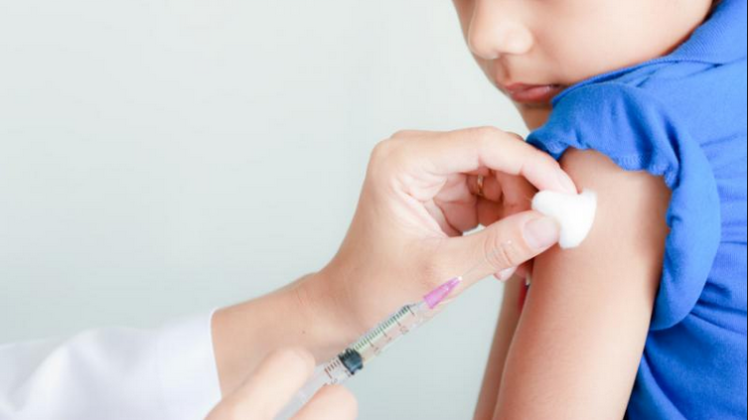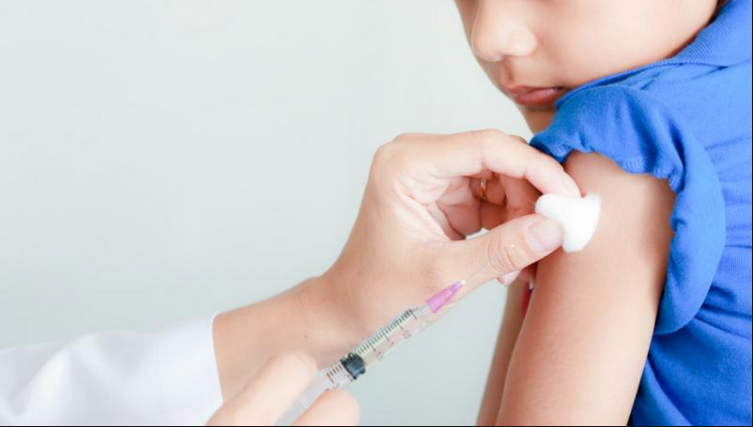
Immunizations are a very important, albeit occasionally controversial, topic in the pediatric population. Often with a little more discussion with your pediatrician, the importance of childhood vaccines can become more apparent and clear.
How do vaccines work?
The diseases that vaccines prevent can be dangerous or even deadly. Vaccines reduce the risk of infection by working with the body’s own natural defenses to help safely develop immunity to diseases. When bacteria or viruses invade the body, they can attack and multiply leading to an infection and triggering the body’s immune system defenses. Once it fights off the infection, the body is left with a supply of cells that help recognize and fight that disease in the future. Vaccines help develop immunity by imitating an infection. This dead or severely weakened form of the infection does not cause illness, but does cause the immune system to develop the same response as it does to a real infection so the body can recognize and fight the vaccine-preventable disease in the future. Sometimes, after getting a vaccine, the imitation infection can cause minor symptoms, such as low-grade fever, which are normal and should be expected as the body builds immunity.
What vaccines should my child get?
A schedule of childhood vaccinations is set-forth by the Center for Disease Control (CDC) and can be found on their website www.cdc.gov. Keep in mind, different physician practices may have slight differences in the timing of certain immunizations. Ask your doctor for a schedule of vaccinations your child will need so you can know ahead of time, research any concerns and bring any questions to the doctor’s appointment.
“But they’re so young; maybe I’ll just wait until they’re older…”
The first vaccine of your child’s life, the Hepatitis B vaccine, is recommended before your child leaves the hospital after delivery. Immunizations start so early because children under 5 are especially susceptible to disease; their immune systems have not built up the necessary defenses to fight infection. By immunizing on time you can protect your child from various serious diseases and also protect others at school or daycare.
Herd Immunity
Vaccinations are vital to protecting not only your child, but the community at large. “Herd immunity” is protection from disease in a community, due to a large enough proportion of the population having immunity to prevent the disease from spreading from person to person. Through this mechanism, we have rid society of some of the deadliest of pathogens including Poliovirus and Smallpox!
My child has fallen behind on vaccines; now what?
If your child has not received all of the appropriate vaccines for his or her age, there are “catch up” immunization schedules that can remedy this. Depending on your child’s age, state of health and number of delayed vaccinations, your pediatrician can outline a schedule to administer the necessary immunizations to allow your child to have the appropriate immunity over time.
“But the media said…”
Claims have been made over the years regarding the safety of some routine childhood vaccines suggesting they can cause disorders such as autism spectrum disorders or other developmental delays. The original study that concluded this has since been revoked and top researchers have investigated each of these claims, concluding that vaccines do not cause autism nor any other chronic disorders.
In conclusion,
Successful vaccination programs have helped reduce, or in some cases eliminate the threat of some of the most dangerous childhood diseases and are thus of vital importance to protect not only your child but the public at large. In terms of risk versus benefit, vaccinations are a must! As always, maintaining an open dialogue with your pediatrician is fundamental, such that any and all questions or concerns are addressed.
Dr. Corey Wasserman is a resident pediatrician at New York Presbyterian Hospital-Weill Cornell Medical Center. She received her undergraduate degree in psychology with an emphasis on child development at Bucknell University and went on to attend Jefferson Medical College in Philadelphia, where she received her M.D. and graduated with high honors.

